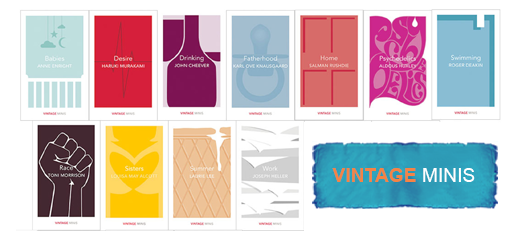
Vintage Minis brings you a series of short books by the world’s greatest writers on the experiences that make us human – from birth to death and everything in between.
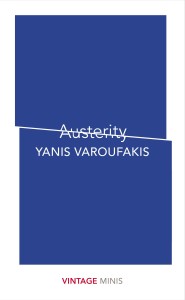
How do we choose between what is fair and just, and what our debtors demand of us? Yanis Varoufakis was put in such a dilemma in 2015 when he became the finance minister of Greece. In this rousing book, he charts the absurdities that underpin calls for austerity, as well as his own battles with a bureaucracy bent on ignoring the human cost of its every action. Passionately outspoken and tuned to the voices of the oppressed, Varoufakis presents a guide to modern economics, and its threat to democracy, like no other.

Babies: our biggest mystery and our most natural consequence, our hardest test and our enduring love. Anne Enright describes the intensity, bewilderment and extravagant happiness of her experience of having babies, from the exhaustion of early pregnancy to first smiles and becoming acquainted with the long reaches of the night. Everyone, from parents to the mildly curious, can delight in Enright’s funny, eloquent and unsentimental account of having babies.
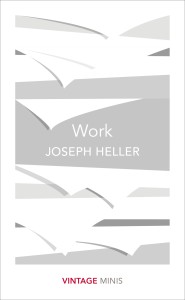
Bob Slocum is anxious, bored and fearful of his job. So why is it he wants nothing more than the chance to speak at the next company convention? In this darkly satirical book, Joseph Heller takes us for a turn on the maddening hamster wheel of work. Heller’s workplace is a cradle of paranoia, bravado and nauseating banter, forever shadowed by that perennial question, who’s really running the show here? In Heller’s hands, our daily grind has never seemed so absurd.

When it comes to death, is there ever a best case scenario? In this disarmingly witty book, Julian Barnes confronts our unending obsession with the end. He reflects on what it means to miss God, whether death can be good for our careers and why we eventually turn into our parents. Barnes is the perfect guide to the weirdness of the only thing that binds us all.

How does a writer compose a suicide note? This was not a question that the prize-winning novelist William Styron had ever contemplated before. In this true account of his depression, Styron describes an illness that reduced him from a successful writer to a man arranging his own destruction. He lived to give us this gripping description of his descent into mental anguish, and his eventual success in overcoming a little-understood yet very common condition.

You’ve just passed someone on the street who could be the love of your life, the person you’re destined for – what do you do? In Murakami’s world, you tell them a story. The five weird and wonderful tales collected here each unlock the many-tongued language of desire, whether it takes the form of hunger, lust, sudden infatuation or the secret longings of the heart.

Have you ever dreamt you were naked on stage, or woken having failed an exam? In these fascinating, pioneering essays, Sigmund Freud plunges into the recesses of our minds, and awakens the hidden meanings behind our most typical and surprising night-time fantasies. From dreams of violence and death, to the more prosaic moments in our dream-life, Freud shines a light on the darkness we are often happy left consigned to night.

What’s the worst another drink could do? John Cheever pours out our most sociable of vices, and hands it to us in a highball. From the calculating teenager who raids her parents’ liquor cabinet, only to drown her sorrows in it, to the suburban swimmer withering away with every plunge he takes, these are stories suffused with beauty, sadness, and the gathering storm of a bender well-done. Seen through the gin-lacquered looking glass of Cheever’s writing, your next drink may have you reaching for a lime and soda instead.

In this inspiring, witty and eminently sensible book, Nigella Lawson sets out a manifesto for how to cook (and eat) good food every day with a minimum of fuss. From basic roast chicken and pea risotto to white truffles and Turkish Delight figs, Nigella brings the joy back into the kitchen

How to be a good father? Children’s birthday parties, unsuccessful family holidays, humiliating antenatal music classes: the trials of parenthood are all found in Knausgaard’s compelling and honest account of family life. Contrasting moments of enormous love and tenderness towards his children with the boring struggles of domesticity, this is one father’s personal experience, and somehow, every father’s too.
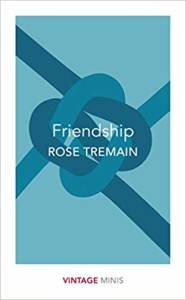
What is the secret to true friendship? Is it really love’s quieter relation or something stronger and more profound? And where does the line between the two lie? Rose Tremain looks at two unlikely lifelong friendships, which – though tested – prove unbreakable. Thought-provoking and life-affirming, this is at once an examination and a celebration of friendship in all its glorious complexity.
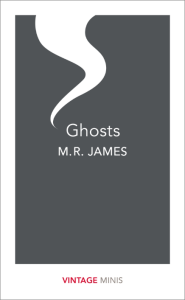
A high-pitched laugh echoes in an empty church. Servants discover their master dead in his bed, the only sign of disturbance an open window. The coffin of a woman hanged as a witch is found to be empty. A bed that hasn’t been slept in is crumpled and distressed come the morning. A skeletal figure creeps closer and closer to the house where an unsuspecting family lie sleeping. In these chilling tales of the supernatural, M. R. James proves he truly is the master of the ghost story.
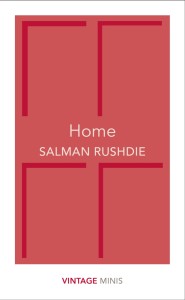
Salman Rushdie, a self-described ‘emigrant from one place and a newcomer in two’, explores the true meaning of home. Writing with insight, passion and humour, he looks at what it means to belong, whether roots are real and homelands imaginary, what it is like to reconfigure your past from fragments of memory and what happens when East meets West.

How to go on in a world where everything is set against you? With hope? In fear? Or, in violent struggle? In this gripping and disturbing book, Richard Wright weaves his own childhood recollections with those of Bigger Thomas – a young black man trapped in a life of poverty in the slums of Chicago, and unwittingly involved in a wealthy woman’s death – to paint a portrait of insurmountable oppression. Through the strange pride Bigger takes in his crime, Wright brings us to confront the systems of justice we blindly assume are always on our side.
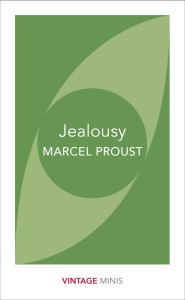
Can we truly know the one we love? In this painfully candid book Marcel Proust looks straight into the green eye of every lover’s jealous struggle. He broods on why we are driven to try possess one another, how jealousy can outlive death, and whether we can ever reclaim those careless days of first love. There is no greater chronicler of jealousy’s darkest fears and destructive suspicions than Proust.

Can we truly know the one we love? In this painfully candid book Marcel Proust looks straight into the green eye of every lover’s jealous struggle. He broods on why we are driven to try possess one another, how jealousy can outlive death, and whether we can ever reclaim those careless days of first love. There is no greater chronicler of jealousy’s darkest fears and destructive suspicions than Proust.
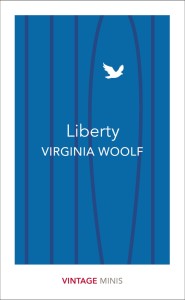
Why should one half be free to live, while the other is doomed to watch silently from the sidelines? In this visionary collection, Virginia Woolf leads us on a transformative journey through the liberating powers of the mind. From an exploration of why women were barred from writing and under what conditions they might break free, to the solace derived from haunting London’s streets, these essays and stories present Woolf at her most impassioned, rendering the pursuit of liberty one of life’s most poetic adventures.
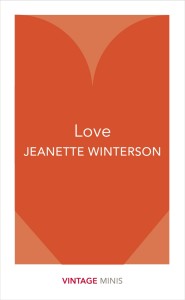
How do we love? With romance. With work. Through heartbreak. Throughout a lifetime. As a means, but not an end. Love in all its forms has been an abiding theme of Jeanette Winterson’s writing. Here are selections from her books about that impossible, essential force, stories and truths that search for the mythical creature we call Love.
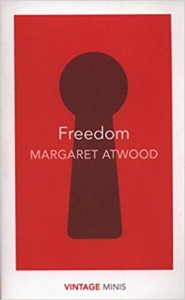
Can we ever be wholly free? In this book of breathtaking imaginary leaps that conjure dystopias and magical islands, Margaret Atwood holds a mirror up to our own world. The reflection we are faced with, of men and women in prisons literal and metaphorical, is frightening, but it is also a call to arms to speak and to act to preserve our freedom while we still can. And in that, there is hope.

Why do we set so much store by marriage? Jane Austen was fascinated by this question, subjecting it to her forensic eye and wonderfully ironic wit again and again. Here are stolen glances and nervous advances, meddling parents and self-important cousins, society whisperings and the fluttering hearts of young lovers. All of them have their own views and expectations of marriage, and Austen’s are the wisest of all.

How did money come to be invented? Why does it now have such significance in our lives? Does it make us happier or unhappier? And what does the future hold for it? With brilliant clarity and insight, Yuval Noah Harari takes the reader on a journey from the very first coins through to 21st century economics and shows us how we are all on the brink of a revolution, whether we like it or not.

Welcome to motherhood – a land of aching fatigue, constant self-sacrifice and thankless servitude, a land of bottomless devotion, small hands and feet like warm pink roses, and velvet kisses. Here is a land where men and women, once carefree and engrossed in work and sex, now try to solve age-old arguments and search fruitlessly for another hour in the day. Perhaps you know this land well, or perhaps you’re entering it for the first time – either way, you need these honest, sharply funny, humane stories from an expert guide.

Could drugs offer a new way of seeing the world? In 1953, in the presence of an investigator, Aldous Huxley took four-tenths of a gramme of mescalin, sat down and waited to see what would happen. When he opened his eyes everything, from the flowers in a vase to the creases in his trousers, was transformed. His account of his experience, and his vision for all that psychedelics could offer to mankind, has influenced writers, artists and thinkers around the world.

Is who we are really only skin deep? In this searing, remonstrative book, Toni Morrison unravels race through the stories of those debased and dehumanised because of it. A young black girl longing for the blue eyes of white baby dolls spirals into inferiority and confusion. A friendship falls apart over a disputed memory. An ex-slave is haunted by a lonely, rebukeful ghost, bent on bringing their past home. Strange and unexpected, yet always stirring, Morrison’s writing on race sinks us deep into the heart and mind of our troubled humanity.
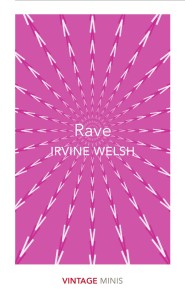
Irvine Welsh, ‘poet laureate of the chemical generation’, exposes the seamy underbelly of rave’s utopian dream. Lloyd, our permanently pilled-up protagonist, pushes his weekends to breaking point and beyond in this frazzled trip through Scottish clubland. He experiences the vertiginous uppers and downers of the Second Summer of Love, dabbles in a spot of disc jockeying and closes in, gradually, on some kind of redemption…

Your sister might be the kindred soul who knows you best, or the most alien being in your household; she might enrage you or inspire you; she might be your fiercest competitor or closest co-conspirator, but she’ll always share with you a totally unique bond. Meg, Jo, Beth and Amy are four of the most famous sisters in literature, and these stories of the joys and heartaches they share are a touching celebration of the special ties of sisterhood.

How do you remember the summers of your childhood? For Laurie Lee they were flower-crested, heady, endless days. Here is an evocation of summer like no other – a remote valley filled with the scent of hay, jazzing wasps, blackberries plucked and gobbled, and games played until the last drop of dusk. Lee’s joyful and stirring writing captures the very essence of England’s golden season.

Is there anything quite so exhilarating as swimming in wild water? This is a joyful swimming tour of Britain, a frog’s-eye view of the country’s best bathing holes – the rivers, rock pools, lakes, ponds, lochs and sea that define a watery island. Charming, funny, inspiring, an assertion of the native swimmer’s right to roam, a celebration of the magic of water – this book will indeed make you want to strip off and leap in.
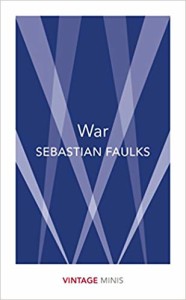
A soldier falls asleep on duty and is threatened with being court-martialled. An officer lies in mud, fighting for his life and the life of his men. A young man walks across Waterloo Bridge, explosives in his rucksack, heart pounding. In this powerfully moving book, Faulks shows us the true face of war. These are stories of death and survival, of hope and despair, and of ordinary people whose lives will never be the same again.
 Blog EBE English Book Education
Blog EBE English Book Education


